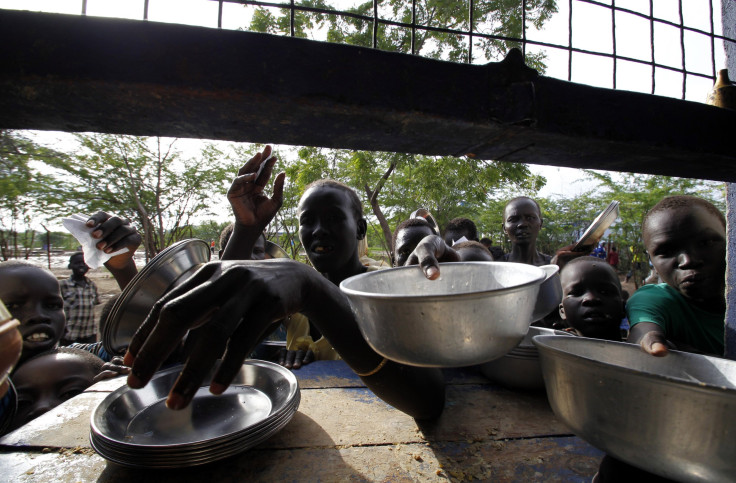UN Cuts Food Rations For Refugees In Kenya, Citing Budget Restraints

Faced with a severe shortage of funds, the United Nations announced, in a statement released Friday, that it would slash by half the food rations being provided to refugees sheltering in Kenya. From mid-November, over half a million refugees in the East African nation will receive a daily food ration of just over 1,000 calories, compared to recommended 2,100 calories a day, the U.N.’s World Food Programme, or WFP, said.
“WFP has done everything it can to avoid reducing rations, using all means at our disposal to cover critical funding gaps,” Paul Turnbull, WFP’s deputy country director for Kenya, said, in the statement. “Cutting rations is the last resort and we’re doing it to eke out the limited food we currently have available over the next ten weeks, as we continue to appeal to the international community to assist.”
Kenya has seen a huge influx of refugees, as worsening conflicts in the neighboring countries of South Sudan and Somalia continue to displace hundreds of thousands of people. The U.N. estimates that currently, Kenya is sheltering nearly 500,000 refugees, who are being housed in shelters in remote areas in the northern regions of the country.
In recent years, following near-simultaneous humanitarian crises in Syria, Iraq, South Sudan and in West African nations struggling to cope with the recent Ebola outbreak, the U.N. has been hard pressed to gather sufficient funds to carry out relief and rehabilitation work. The WFP said, in the statement, that it was struggling to raise the $38 million needed to cover its refugee operations in Kenya for the next six months.
“WFP depends entirely on voluntary contributions from donors who generously support food assistance for refugees,” Valerie Guarnieri, WFP’s regional director for East and Central Africa, said. “With competing humanitarian needs around the world, we realize budgets are tight, but nonetheless, we must call for more funding so that we can work with the Office of the U.N. High Commissioner for Refugees to meet the urgent needs of these vulnerable people, who have no other means of support.”
© Copyright IBTimes 2024. All rights reserved.






















